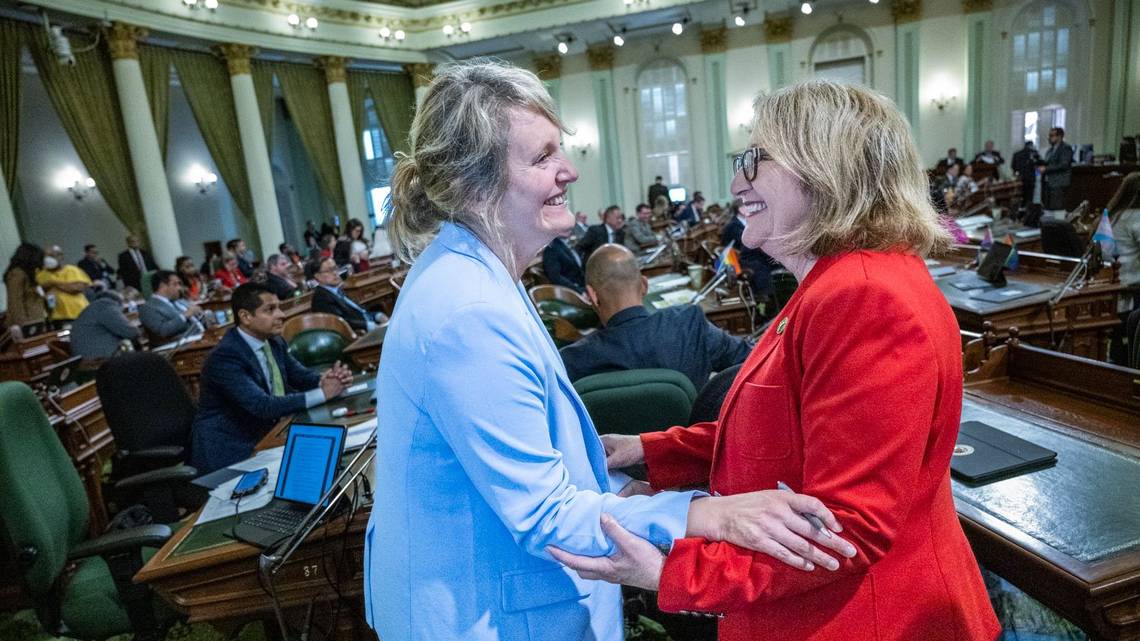According to CNBC, the target of this bill is online platforms with at least 50 million monthly active users in the US, 1 billion active users worldwide , or a market capitalization of over $550 billion. Specifically, these platforms will have to share advertising revenue from the above news content.
The exact amount would be determined through an arbitration process. The bill also requires that at least 70% of this shared advertising revenue be used to pay reporters.

Ms. Buffy Wicks (left) rejoices after her bill was passed in the California State Assembly - USA on June 1. Photo: THE SACRAMENTO BEE
Assemblywoman Buffy Wicks, author of the bill, called the California Journalism Preservation Act (CJPA), said the money from tech giants would help local media companies survive, many of which have seen advertising revenue decline in the digital age. According to Wicks, more than 100 media companies in California have closed in the past decade.
The CJPA is currently supported by several major media industry trade associations, such as the News-Media Alliance (which represents more than 2,000 media companies). Danielle Coffey, President of the News-Media Alliance, expressed hope that the bill will soon become law to help restore fairness and balance to the market.
On June 1, the California Labor Federation made a similar move, saying the bill would help level the playing field between news publishers and social media websites.
The CJPA needs to pass the state Senate and be signed by Governor Gavin Newsom to become law, an outcome that would add to the headaches for major tech platforms that have faced similar pressure elsewhere, according to CNBC.
For example, the CJPA has a similar purpose to a bill called the Journalism Competition and Preservation Act (JCPA), which a group of lawmakers sought to push through the US Congress last year.
A day before the vote in the California House of Representatives, Meta (the parent company of social networks Facebook and Instagram) threatened to pull all news content from its platforms if the bill became law.
The company sent similar warnings to the US Congress in 2022 and the Canadian government this year. Wicks dismissed the threat, pointing out that companies like Meta have made billions of dollars while a string of media companies have shuttered across California.
Source































![[Photo] National Assembly Chairman Tran Thanh Man visits Vietnamese Heroic Mother Ta Thi Tran](https://vphoto.vietnam.vn/thumb/1200x675/vietnam/resource/IMAGE/2025/7/20/765c0bd057dd44ad83ab89fe0255b783)




































































Comment (0)